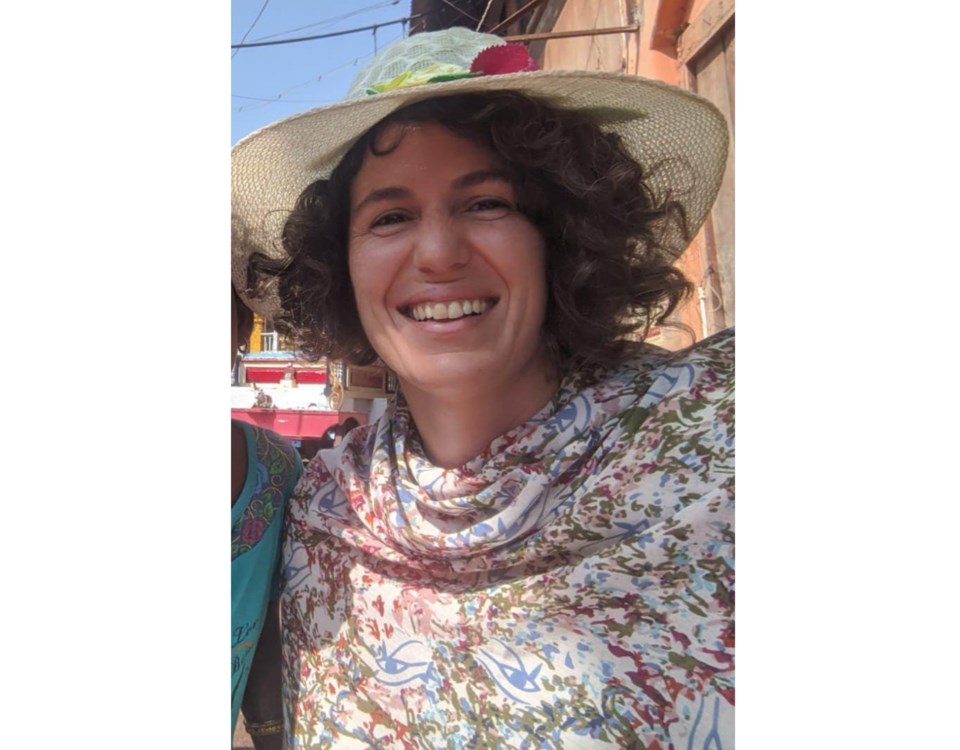TORONTO — Mayan Shavit was incredulous at first when rumours surfaced on social media saying her cousin was dead. Carmel Gat had, after all, recently been seen by some of her fellow Israeli hostages doing yoga as a way to keep up her morale during the months she spent in captivity with Hamas.
But Shavit's hopes for her cousin's survival were shattered when she saw news reports confirming that Gat was among six hostages whose bodies were recovered by the Israeli army in Gaza on Saturday shortly after they were killed.
Shavit, who lives in Toronto, said she is wrestling with both anger and grief after learning Gat's fate.
“I just can't stop crying, I can't understand. I am very angry," she said in a phone interview, adding she plans to fly to Israel on Monday to attend her cousin's funeral.
Gat was among more than 200 hostages seized by Hamas in the Oct. 7, 2023 attack that killed more than 1,200 Israelis and sparked the current war with Israel. One of Shavit's aunts died during the attack, while another of her cousins was taken hostage but released a month later.
Israel has been retaliating ever since, and health officials in Gaza say the ensuing 11 months of war have killed more than 40,000 people, two thirds of them women and children.
The release of Israeli hostages has been a key issue in internationally brokered peace talks intended to end the war, with Hamas vowing to release all hostages if Israel halts attacks in Gaza and releases hundreds of prisoners. Israel, for its part, insists it will not stop until Hamas has been destroyed.
Shavit said Gat's whereabouts were unknown for months after she was kidnapped, only becoming clear when a group of hostages was released and reported seeing her alive and well.
"They told us that she is unharmed and unhurt and, you know, like nobody touched her or anything horrific like this," she said.
Gat was a yoga master, Shavit said, and regularly kept up the practice in captivity. Hostages who were released during a November pause in hostilities also said she taught them meditation and yoga exercises to help them survive.
The Israeli Health Ministry said autopsies had determined Gat and the other five hostages were shot at close range and died on Thursday or Friday. The army said the bodies were recovered from a tunnel in the southern Gaza city of Rafah, roughly a kilometre from where another hostage was rescued alive last week.
The most recent deaths have sparked an outpouring of protest against Israeli Prime Minister Benjamin Netanyahu, with thousands taking to the streets of Jerusalem and Tel Aviv on Sunday calling on him to reach a ceasefire deal and secure the immediate release of the rest of the hostages. Israel’s largest trade union, the Histadrut, applied further pressure by calling a general strike for Monday, the first since the war began. It aims to shut down or disrupt major sectors of the economy, including banking, health care and the country’s main airport.
Shavit's grief over Gat's death is mixed with anger at both sides. She says she blames Hamas for holding hostages and starting the war while pointing the finger at Netanyahu for not doing enough as the country’s prime minister to protect and bring those held in captivity back home.
She said the time to end the conflict and bring back the hostages has long passed.
“You better stop it because it is a lose-lose situation to all sides," she said. "Nobody (is) going to leave winning from it.”
This report by The Canadian Press was first published Sept. 1, 2024.
— With files from The Associated Press.
Sharif Hassan, The Canadian Press



